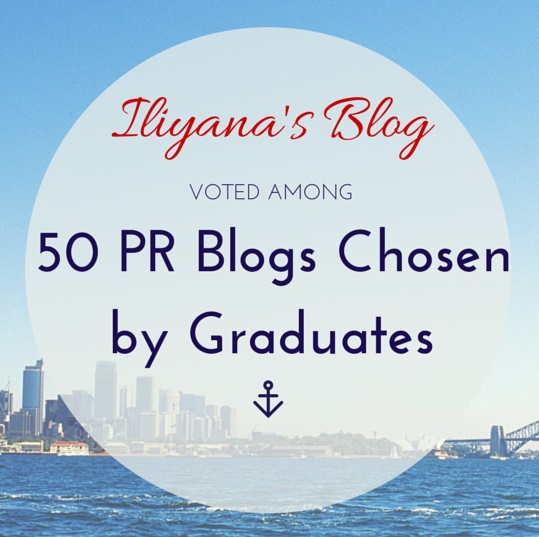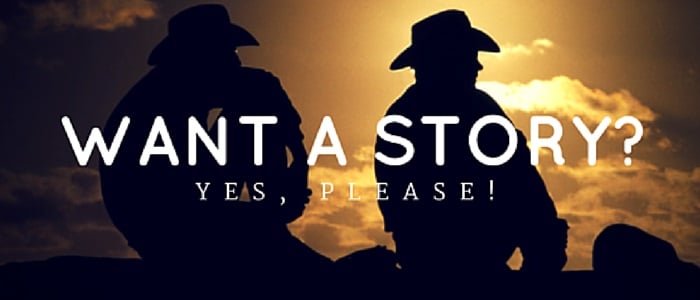
Do you like TV ads? How about magazine ads? Do you pay attention to them or do you just skip them?
Now let me ask you another question: Do you like stories? Do you enjoy being immersed into an exciting narrative allowing you to escape reality and enter a new world?
I like stories. I like to let my brain follow the imaginative flow of a good story and visualise the narrative, the heroes, the actions and happenings of what I am reading, watching or experiencing.
As a marketer you are probably used to relying more on hard facts and lists of benefits rather than engaging stories. That might have worked in the Mad Man era, but in the world of real-time, non-stop social interactions and online content it no longer does.
Don’t believe me? Check out some facts from a Nielson study:
- 92% percent of consumers around the world say they trust earned media, such as word-of-mouth or recommendations from friends and family, above all other forms of advertising – an increase of 18% since 2007.
- Online consumer reviews are the second most trusted source of brand information and messaging, with 70% of global consumers indicating they trust online messages, an increase of 15% in four years.
- While nearly half of consumers around the world say they trust television (47%), magazine (47%) and newspaper ads (46%), confidence respectively declined by 24 percent, 20 percent and 25 percent between 2009 and 2011.
Still, the study finds that the majority of companies continue to rely on these traditional methods. But why when they obviously don’t work? Are they throwing money away? I think yes.
Now is the time to stop. Now is the time for brands to make their content resonate with their audiences and use the relevant platforms and messaging. Now is the time to make a personal connection rather than just sell. How? With effective storytelling. It’s key to engaging today’s consumer.
Stories stimulate the brain and even change the way we live, research has found. Our brains on fiction don’t make much of a distinction between reading about an experience and encountering it in real life. What’s more, we spend a third of our lives daydreaming, flitting from one distraction to another, so the only way our brains stop is when we have a good story in front of us.
What better way for marketers and communicators then to attract audiences, encourage consumer behaviour and drive change?
To show you the benefits and the ways to making stories work for your brand, I have below collated seven compelling storytelling infographics you should to check out now.
The 7 Best Storytelling Infographics:
The Science of Storytelling
Our brains actually crave good storytelling when it comes to marketing. We are wired for stories; we like the excitement; we trust an interesting narrative more than simple messaging.
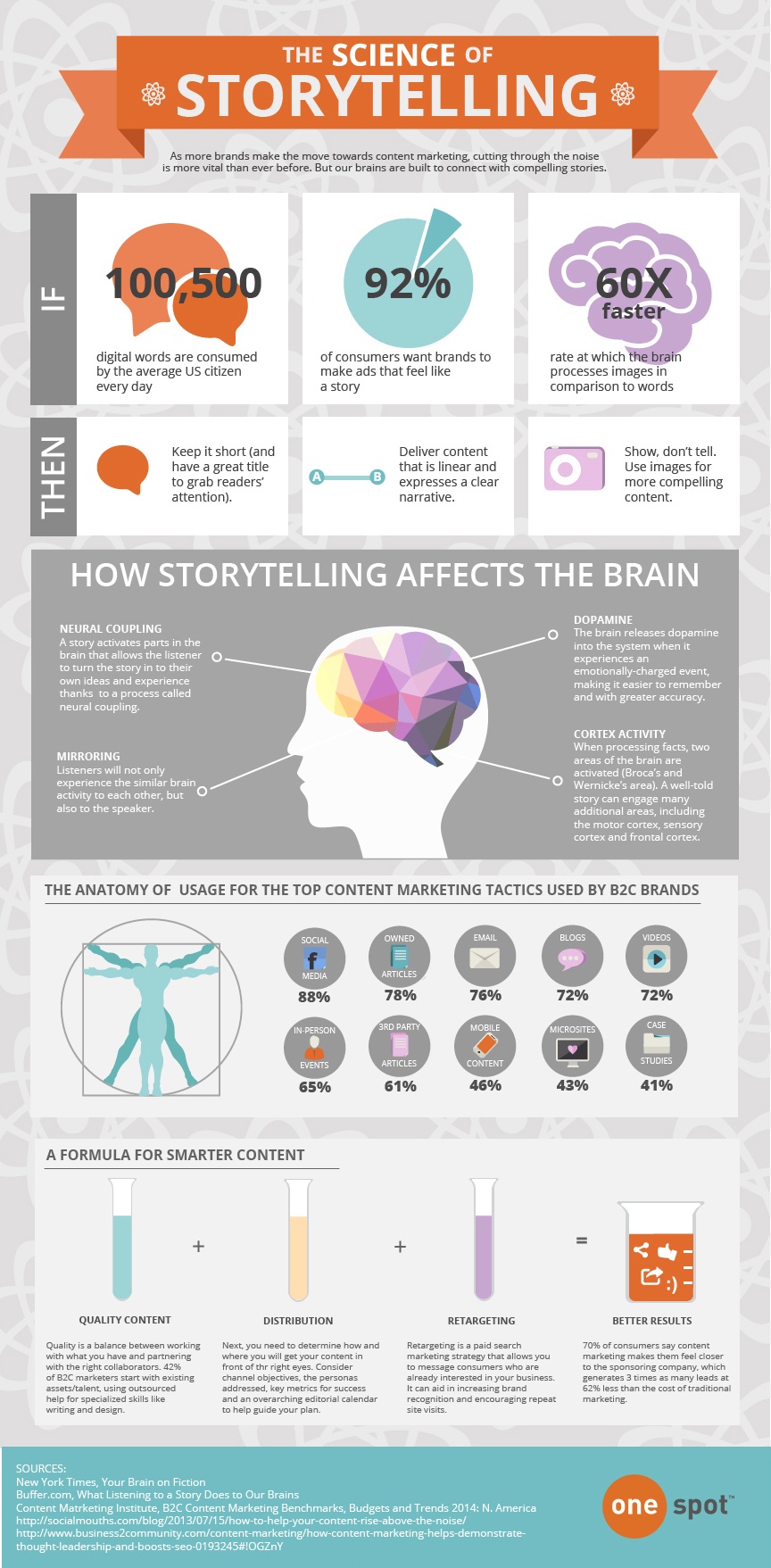
Cutting through Information Overload with Effective Storytelling
Effective storytelling helps you cut through the clutter. With so much information out there, the biggest challenge for marketers is to stand out among all that noise. Storytelling enables you to be heard.

How to Be a Great Storyteller
Now that you know why you really need storytelling, it’s time to put it to practice. You can use the very simple pathway formulated in this infographic:
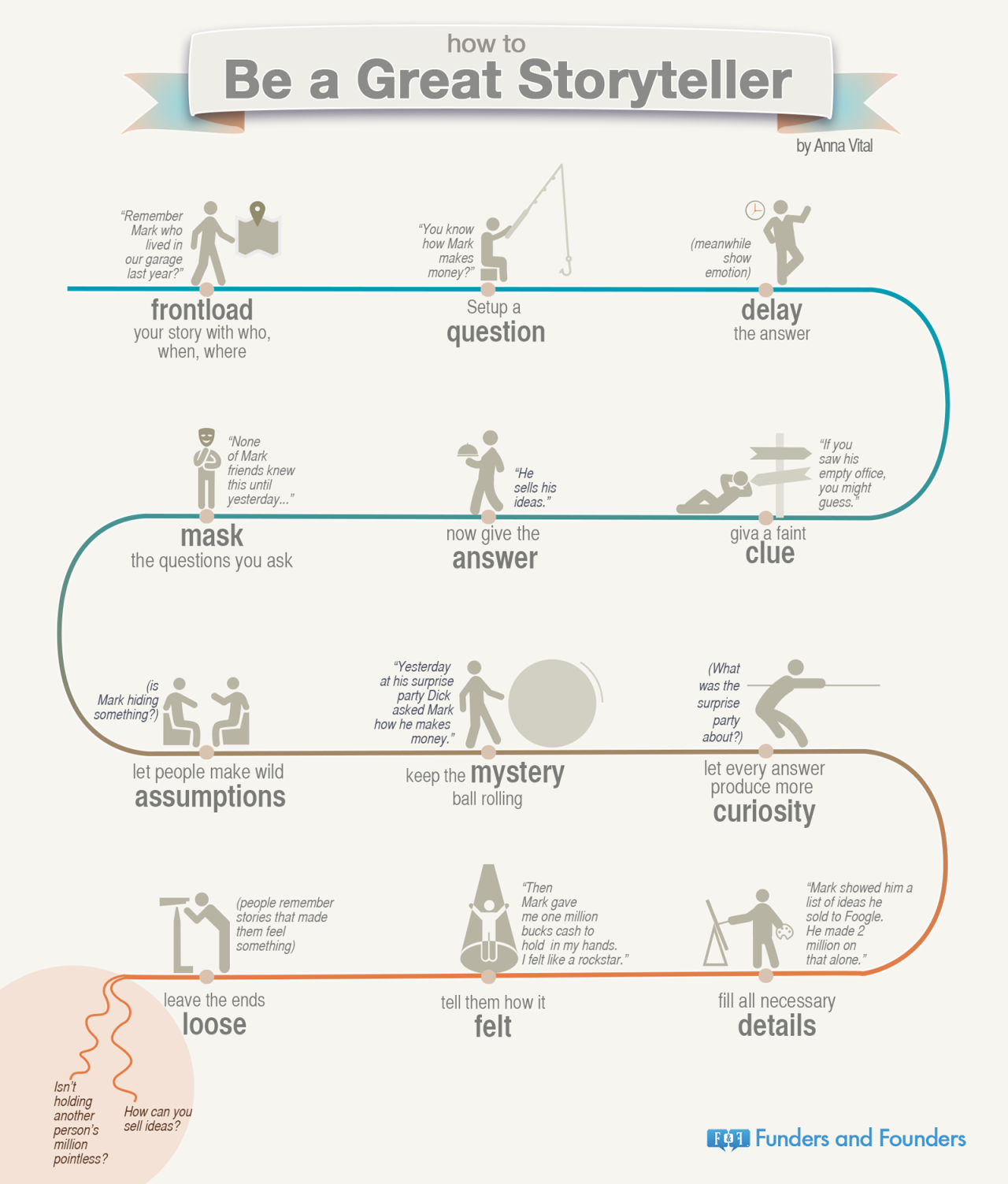
Seven Steps to the Perfect Story
When creating your story make sure you have a structure, a plan, heroes and characters in place and then choose the media.

Storytelling Techniques
You can’t just sit down and write anything. For your storytelling to be effective you need to make sure you use the appropriate techniques. Here’s some advice:
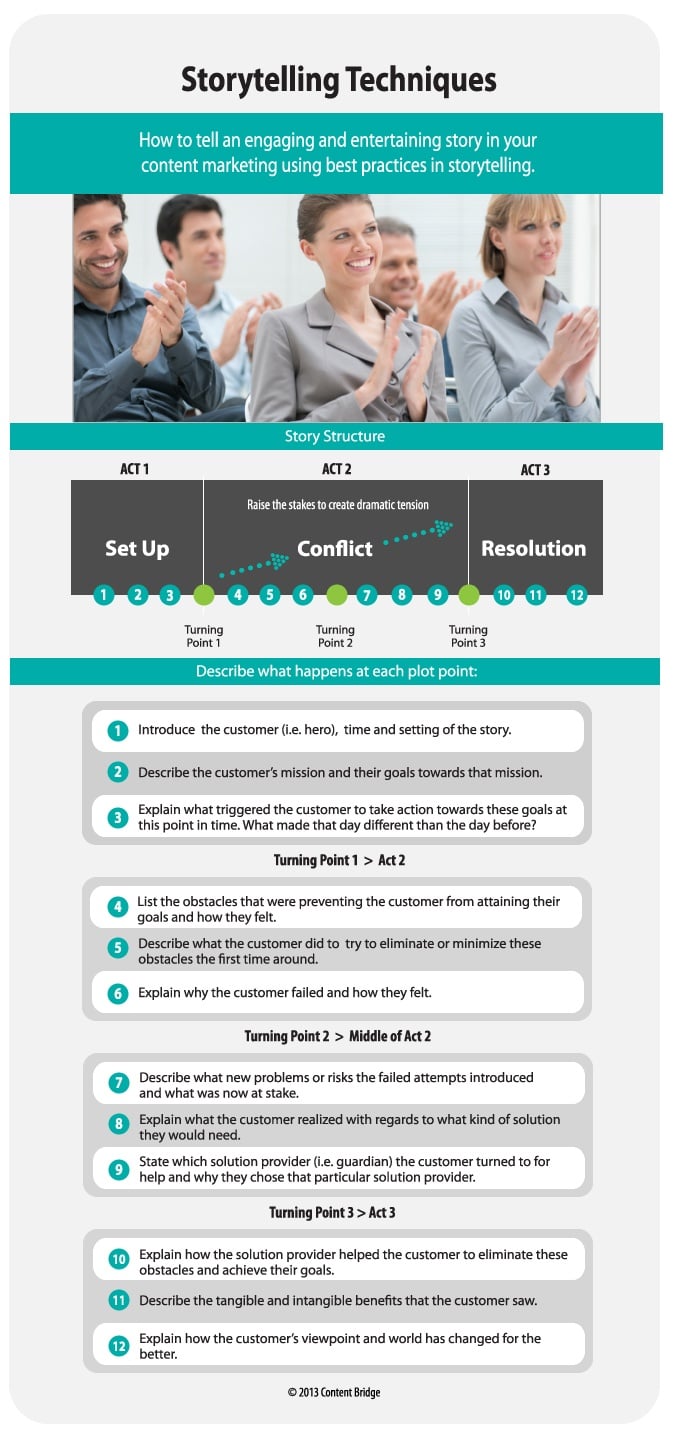
What really makes a Good Story?
Having followed the above steps and formula, you should now test how good your story is. To be so it needs seven key characteristics: drama, familiarity, simplicity, immersion, relatability, agency and trust in the teller.
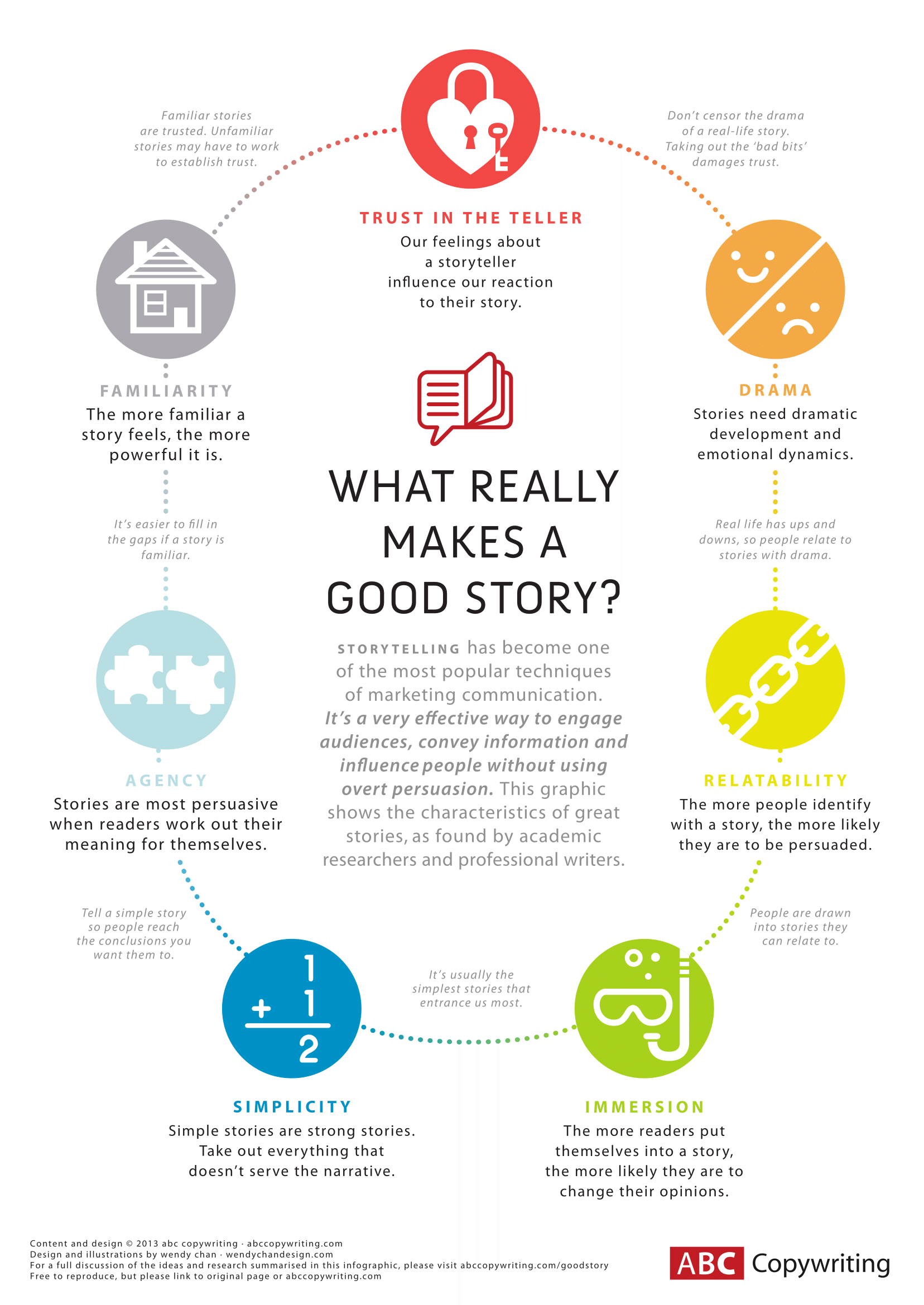
Storytelling vs. Corporate Speak
To spice up your brand story, make sure you avoid corporate jargon and use techniques that are enticing and captivate your readers. Be careful with your words choice too.

Do you use storytelling in your marketing?




